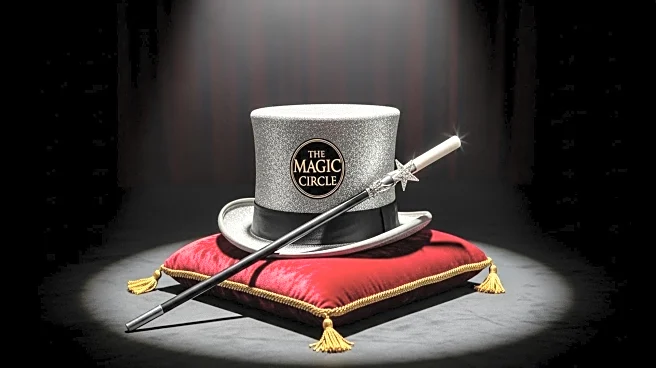What's Happening?
Michael J Fitch, a magician from Colchester, has been elected as the vice-president of The Magic Circle, an international society dedicated to the art of magic. Fitch, who has been a member of the society's council for four years, expressed his honor at being chosen for the role. The Magic Circle, founded in 1905, boasts approximately 1,700 members worldwide. Fitch discovered his passion for magic at the age of four and has since performed globally for various celebrities, royalty, and dignitaries. His election comes as The Magic Circle celebrates its 120th anniversary, marking a significant milestone for the organization.
Why It's Important?
The election of Michael J Fitch as vice-president of The Magic Circle highlights the continued relevance and prestige of the organization within the world of magic. As the society celebrates its 120th anniversary, Fitch's leadership is expected to bring fresh perspectives and renewed enthusiasm to its members. His global experience and recognition as an award-winning magician could enhance the society's outreach and influence, potentially attracting new members and increasing public interest in the art of magic. This development underscores the importance of leadership in maintaining the vitality and tradition of cultural institutions.
What's Next?
With Michael J Fitch assuming the role of vice-president, The Magic Circle may see new initiatives aimed at expanding its membership and influence. Fitch's experience and connections could lead to increased collaborations with international magic communities and events. As the society continues to celebrate its 120th anniversary, there may be special events or programs designed to honor its history and promote its future. Members and enthusiasts of magic will likely watch closely to see how Fitch's leadership impacts the direction and activities of The Magic Circle.
Beyond the Headlines
The election of Michael J Fitch as vice-president of The Magic Circle also highlights the evolving nature of traditional societies in adapting to modern times. As the organization seeks to remain relevant, it may explore new ways to engage with younger audiences and incorporate contemporary trends in magic. This could involve leveraging digital platforms for virtual performances or educational content, thus broadening its reach and appeal. The leadership change may also prompt discussions on the role of cultural heritage in preserving and innovating artistic practices.











